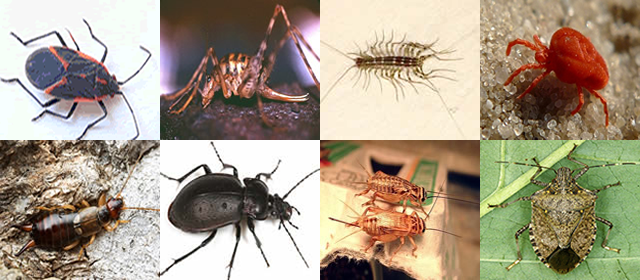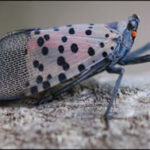As their name indicates, occasional invaders are pests that invade homes from time to time because the weather conditions has become tough for them to survival. These insects include, but are not limited to, boxelder bugs, centipedes, crickets, earwigs, clover mites, ground beetles, cockroaches, ladybugs, millipedes, pillbugs, silverfish, springtails, earwigs cluster flies and stink bugs to name a few.

Occasional invaders are active year-round and spend the majority of their time outside. However, tend to notice them more frequently inside during the fall season because they are searching for a place to overwinter.
 This doesn’t hold true for the Spotted Lantern Fly. While the adults do not survive the winter, the same isn’t true for their egg masses, which are tough enough to withstand brutal weather conditions. Those eggs hatch in late spring, revealing nymphs with black and white spots.
This doesn’t hold true for the Spotted Lantern Fly. While the adults do not survive the winter, the same isn’t true for their egg masses, which are tough enough to withstand brutal weather conditions. Those eggs hatch in late spring, revealing nymphs with black and white spots.
Although outdoor invaders may enter structures in large numbers, they are often nothing more than an annoying nuisance. Boxelder bugs and Stink bugs may exude a defensive fluid when crushed that could stain curtains, drapes, clothing and other fabrics and silverfish can infest paper, particularly wallpaper, books, and envelopes, so these materials could become damaged over time.
Preventing and Controlling Occasional Invaders:
- Control should begin with the elimination of moist harborage sites around the perimeter of the home, such as leaf piles, mulch, and overgrown vegetation.
- Seal possible points of entry into the home with a good quality caulk, paying special attention to cracks in the foundation, utility pipes and wood fascia.
- Damaged screens on doors and windows should also be repaired.
- Spotting a stink bug on the wall or a centipede crawling across the floor is common. You can use a vacuum to get rid of these invaders.
- For the spotted lantern fly, walk around the property and check for egg masses on trees, cement blocks, rocks, and any other hard surface. If you find egg masses on the property, scrape them off using a plastic card or putty knife, and then place the masses into a bag or container filled with rubbing alcohol or hand sanitizer. This is the most effective way to kill the eggs, you also can smash or burn them.
It’s important to understand however, that a pest invasion can quickly turn into an infestation if no action is taken.
If you experience an influx of occasional invaders around the home, call the experts at Universal Pest Services (610)449-0740 and schedule a free inspection today!